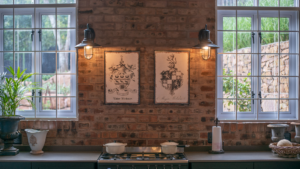If this sounds familiar to you, you might be a victim of domestic abuse. Your partner apologises and promises the harmful behaviour won’t recur, but you are afraid it already has. The mental or physical anguish you experience is real, even though you occasionally question whether you imagine the abuse.
What is domestic violence?
Domestic violence, known as intimate partner violence, affects intimately involved individuals. Domestic abuse can take many different forms, including verbal, sexual, and physical, as well as threats of assault. A partner can abuse anyone, but domestic violence is most frequently committed against women. Both same-sex and heterosexual partnerships are susceptible to domestic violence.
At first, it might not be simple to recognise domestic violence. There is always an imbalance of power and control in abusive relationships. An abuser controls a relationship by using scary, cruel words and actions. Although some relationships are abusive at once, they frequently begin subtly and worsen over time. If you are in a relationship with a person who:
- Insults you, calls you names or otherwise belittles you.
- Prevents you from going to work, school, or seeing your family or friends or discourages you from doing so.
- Demonstrates jealousy or possessive behaviour or persistently accuses you of being unfaithful.
- Tries to regulate how you spend your money, where you travel, what medications you take, or what you dress.
- When taking alcohol, they become irate.
- Threats to use force or a weapon on you.
- Attacks you, your children, or your pets with blows, kicks, shoves, slaps, or other physical force.
- Forces you to engage in sexual activity or have sex with you against your will.
- Blames you for their violent actions or claims you deserve it.
Pregnancy as a factor
Pregnancy is when domestic abuse can start, worsen, or both. Even after the baby is born, there is still a risk. Your health and the infant’s health are at risk due to domestic abuse.
Even if your child isn’t the victim of domestic abuse, just seeing it might be dangerous. Children who are raised in abusive environments are more prone than other kids to experience maltreatment and behavioural issues. They are more likely to abuse others as adults or to believe that abuse is a standard component of relationships.
You might be concerned that admitting the truth will put you, your child, or other family members at even greater risk and could split your family apart. However, the best approach to safeguard your family and yourself is to ask for assistance.
Escape the cycle
If you’re being abused, you might see the following pattern:
- Your abuser threatens you with harm.
- You are being tormented.
- Your abuser apologises, makes amends, and gives you gifts.
- The cycle never ends.
Being in an abusive relationship has lasting physical and emotional consequences. You may feel depressed and anxious or start to doubt your ability to care for yourself. You could feel paralysed or powerless. It may also be unclear to you whether you are to fault for the abuse, which makes it more difficult to receive help. Domestic abuse victims often worry about this.
Have a safety plan
It might be perilous to leave an abuser. Think about using these safety measures:
- To get help, contact a women’s shelter or hotline for domestic abuse—call from a friend’s house or another safe area or when the abuser isn’t there.
- Put your extra clothes, keys, and other stuff you’ll need when you leave in an emergency pack.
- Place the bag in a secure location. Keep your critical documents, cash, and prescription drugs close to hand so you can quickly carry them.
- Be sure about your destination and your route there.
Protect yourself
An abuser can see your phone and internet communications and find you using technology. Ask for assistance if you are worried about your safety. For the sake of your privacy:
- Use phones with caution. Your abuser might listen to your discussions and intercept calls. An abusive partner could access your call and text history using caller ID, your phone, or your billing information.
- Be cautious when using your home computer. Your abuser could track your correspondence and the websites you visit using spyware. Consider utilising a computer at work, the library, or a friend’s house to get assistance.
- Disable GPS devices. Your abuser can use the GPS in your car or the one in your phone to determine where you are.
- Change your email password frequently. Select passwords that would be challenging for your abuser to decipher.
- Delete any previous viewings. To remove any trace of the websites or visuals you’ve visited, follow the instructions provided by your browser.
Seek help
Call 10111 if there is a crisis. Additional tools include the ones listed below:
- A person you believe. For assistance, speak with a friend, family member, neighbour, coworker, or religious or spiritual advisor.
- For women who have endured violence, Powa offers counselling—both over the phone and in person—as well as interim housing and legal support. You can reach them at 011 642 4345.
- A healthcare professional can direct you to safe lodging and other nearby resources in addition to treating injuries.
- A facility for mental health or counselling. Some cities offer counselling and support groups for women in abusive situations.
Conclusion
Although it may be difficult to accept or realise that you are in an abusive relationship, assistance is available. Do not forget that no one deserves to be abused, as there are many ways you can receive help in such a situation.



